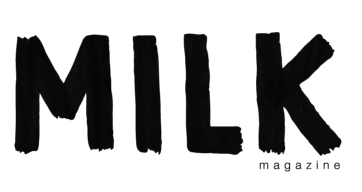| BANYAN BLOG |
banyan blog
|
Over the last few months I’ve had a Khmer teacher who has helped me learn how to read and write Khmer. The alphabet and grammar are fairly straightforward (the vowels are a bit tricky). Writing is a bit difficult as it is entirely different than the Roman script. While we focus most of our lessons on the mechanics of the language I am also learning interesting and important aspects of Khmer communication. What I’m learning is that the Khmer language is fairly complex in the layers of communication. Cambodia is a very hierarchical society and words are chosen depending on whom you are speaking with. There are many websites, blogs and books if one is interested in learning the history and basics of Khmer language. What might not be as easily accessible are the unwritten rules of this hierarchy in communication. Through language, Khmers communicate the values they put on respect and distinction of social classes in society. This social value is transmitted through the importance that Khmer people put on honorific titles and the different words one uses to speak with certain people. In the Khmer language when you communicate with a particular person, the person’s social status and age has to be considered. What is also interesting is that some of the words you use to communicate with a monk are entirely different than the words you would use to communicate with the king, and sometimes elders, friends, or children. This makes it difficult for someone who is trying to learn all aspects of the language to understand what words are appropriate to use with whom.
While I have enjoyed learning the basics of reading and writing Khmer, I’ve realized that there are things you learn growing up in speaking the language that takes time to grasp. I’ve learned these unwritten rules growing up but now that I am living in Cambodia, I didn’t realize the depth and breadth of the words Khmer people use to make a distinction of hierarchy in society. The importance of honorific titles and the different words you use when speaking to different people are things you may not learn in a foreign language program, but are equally important and are a window into understanding Khmer culture and people. IMPORTANCE OF HONORIFIC TITLES Honorific titles are extremely important in Khmer language. These titles always precede someone’s name or the name can be omitted. What cannot be omitted are these honorific titles without use of, would be deemed extremely rude in Khmer culture. For expats, and to some extent, the diaspora, Khmers in Cambodia are usually forgiving if it is omitted. However, as someone who grew up in Cambodia, many local Khmers would be offended if appropriate titles are not used, especially an older person or a person of high social status. For the diaspora, these titles are used less and less, because of the influence in Western culture. There are many of these titles in Khmer language and some of the most common ones are below. These words can be used for a relative, acquaintance or stranger. The last three words are titles of those with high social status.
Growing up I was aware of some of the honorific titles and the various words we used towards different people. Our Khmer community was small and dispersed and American culture does not emphasize hierarchy in language as much as Khmer. Therefore, recognizing a Khmer person’s social status and age in the U.S. was not as important as it would have been in Cambodia. The most common titles I remember using growing up was Ming, Pou, Om, Yey or Ta. The others were not as much in our vocabulary. I didn’t grow up calling my siblings Bong and they never called me Paun. We all had our family nicknames and that’s what we went by around the house. In fact, I don’t know any Khmer family in our community in the U.S. that uses these titles (Bong or Paun) in their family. The longer we lived in the U.S. the less important these titles were in our everyday language, and the less we used them. However, now that I am in Cambodia, I am getting used to saying them. At first I felt out of my comfort zone calling someone Paun or Aun, even if they were younger than me. It feels weird for me to call someone Lok or Chumteiw or Ayah’dom. And I still can’t get used to having someone call me Chhay at the market. I am more aware now of the importance of these titles. I always have to be mindful of whom I am speaking with and how I address them, and hope they will not be offended if I don’t call them by the right title. Perhaps the longer I stay, it will come more naturally to me, and I won’t have to give it a second thought. ONE WORD, MANY WORDS There are multiple layers of the Khmer language. The honorific titles and the words one chooses to speak illustrate one’s upbringing and the relationship to the person with whom they are speaking to. Growing up I didn’t realize there are different words one uses to speak with an older person as a sign of respect, speaking with children, and peers, which are common Khmer words. In addition, I had no idea that there’s an entirely new set of words/language one must use when speaking with a monk or royalty, which are not common in colloquial Khmer. In the Khmer language there are many words that have different variations depending on whom you are speaking with. For example, in English there’s only one word for “eat”. However, in Khmer there are around 10 words for “eat” and each word is used towards someone’s social status or in a particular setting. Eat:
Sleep:
Growing up, we would go to the pagoda twice a year at most, and in most cases the children would never go inside the temple to see the monk or talk to one. Learning how to speak the Khmer royalty language was a pointless effort. It is unlikely we would ever come across the king in our lifetime, nor someone in the royal family, nor was the importance of Khmer royalty something that was taught to us, as it was to my parents in their youth. I understood the importance of respecting elders but didn’t realize the extent of different words when speaking with them as opposed to a child. THE LANGUAGE BARRIER: AN OUTSIDER LOOKING IN? These are all things I am learning as I delve deeper in learning the language. My parents understood the importance of these different layers of the Khmer language. These values were ingrained in them when they grew up. For the children, these values in the hierarchy in speech were not as important to learn because we were part of a new culture and spoke a different language. The longer I am in Cambodia, the more I realize how different my life would have been, and how different I would be, had we stayed after the war. I realized these differences when I first visited the country in 2004, but the contrast I saw then are much different than the ones I see now. Back then the differences I noticed were more superficial, or on the surface—a tougher beginning after the war, lack of opportunity for education and employment. They were tangible. Now the differences I’ve come to realize are below the surface, like language and culture that are opposite to the values I adopted in the U.S. It changed my way of thinking and the way I am interact with people. These differences are like little invisible barriers that are slowly coming down the more I learn. Most Khmers will be very friendly and forgiving when people like me, the diaspora, speak Khmer with a foreign accent. They will not be offended when I use the wrong title, or wrong word when speaking to a monk or an elder. When I make these mistakes, there’s often an understanding and perhaps a bit of pity that we were deprived of getting to know language and culture of our people in a deep way. And while the locals still embrace our efforts, and are patient and try to help us through them, I believe we are still very much considered as “outsiders”. When I do when I do master the language, when the words roll off my tongue easier than they do now, when I don’t have to give it a second thought of the words to use with whom, I wonder, will I still feel like an outsider here? *A special thanks to my Khmer teacher and my mother who helped me come up with interesting examples to illustrate the hierarchy in Khmer language. If there's any mistakes in spelling or translation, please let me know. If you have other interesting examples to share, I would love it if you could share it in your comments. Thank you!*
15 Comments
Sovann
6/29/2014 02:23:26 pm
My mother and her family immergrated to the U.S so naturally I would use the titles such as Om for any older aunts/uncles and Yay when talking about or to my grandmother however for my two younger aunts I call them mean instead of Ming and I referred to my now late grandfather as Da?
Reply
Mitty
6/30/2014 11:45:56 am
Hi Sovann,
Reply
Tiffany
4/11/2015 08:53:36 am
Hello, I grew up calling my mother's younger sisters (I am not sure how to spell it correctly) "mome" and "thoot". I am spelling them out the way it sounds,
Reply
Tiffany
4/11/2015 08:54:46 am
What exactly does "mome" and "thoot" mean? Is it some sort of slang?
Reply
Mitty
4/12/2015 12:20:17 am
Hi Tiffany, 1/19/2016 01:28:09 am
I'm learning the language in PP, and guilt of being both too formal and too familiar in my desire to be polite. I found your helpful post (and thoughtful blog) after a search for how to properly address people in Khmer. Thanks!
Reply
Mitty
1/20/2016 05:51:23 am
Hi David,
Reply
David Wishart
1/21/2016 10:24:08 am
Yes, I've bookmarked your blog, and seen a number of posts of interest for later reading. Thanks for sharing :-)
Claire
8/31/2016 10:00:08 am
Hi! This article is great, truly helpful.
Reply
Mitty
9/1/2016 06:38:32 am
Hi Claire,
Reply
Claire
9/1/2016 10:00:05 am
Hi Mitty,
Dan
10/1/2017 09:01:19 pm
Aw kun! very helpful. i noticed when i'm around my khmai friends they use these words and it was confusing.
Reply
Fulgendo
5/4/2018 08:20:27 am
Good work. I am glad to read it. It would be helpful if you write khmer words in the Khmer script. I've been learning Khmer for two years now, and( right now I am staying in Cambodia for three moths) have noticed that romanization is completely unreadable, I mean there are much more problem with correct pronunciation. From my observation there are more multiple simplifications in a speech.
Reply
Isaiah Langpaap
5/15/2018 09:00:33 am
Another word for eating, (This is a very old one, my mom described it as "Boran") is "Chey", used in mainly rural and heavily forested areas of Cambodia. For death another word used is "Koik" like broken or ruined, not broken as in "bak". Think of the insult, "Srey Koik", mischevious/promiscuous girl.
Reply
Jason Blackmon
12/5/2022 01:24:51 am
Trying something new like an Asian language. I picked khmer. By the way I am from Texas and I sound like it!
Reply
Leave a Reply. |
FEATURED INMOST POPULARThe Journey Archives
October 2022
follow |
All Rights Reserved


